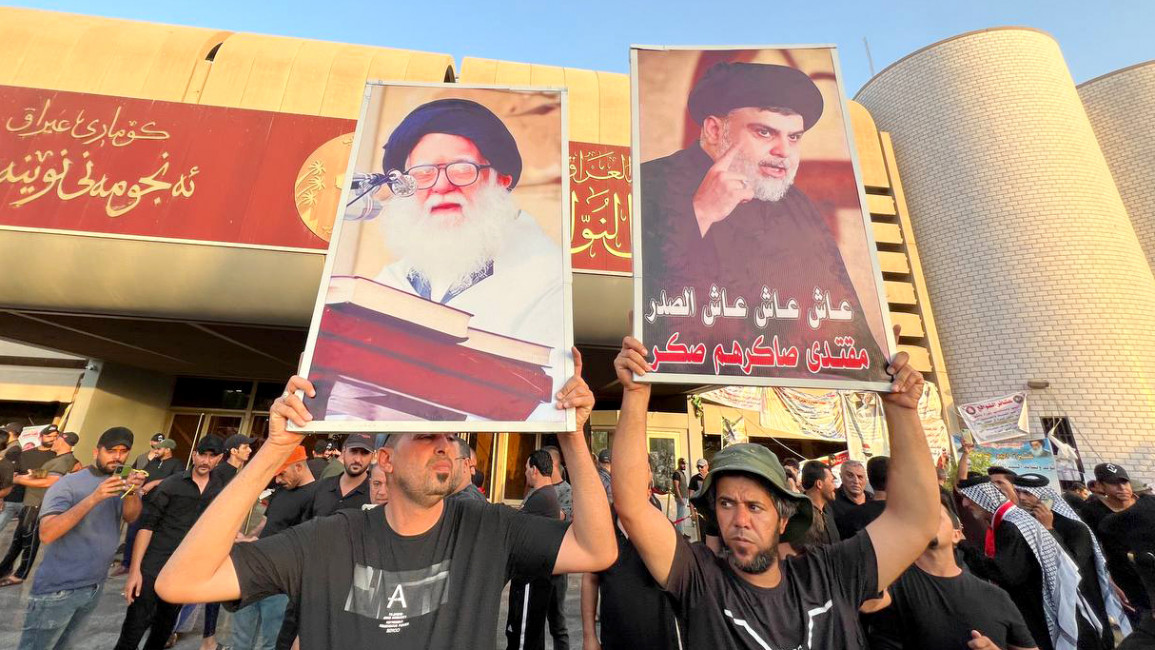Iraq's top court postpones emergency session on 'dissolving parliament'
The Iraqi Supreme Federal Court on Wednesday postponed its session to look on complaints raised by supporters of firebrand Shia cleric Moqtada al-Sadr urging the court to dissolve the country's parliament by the end of this month, legal sources told Al-Araby Al-Jadeed, The New Arab's Arabic-language sister outlet.
Iraq's Supreme Federal Court, the top judiciary authority in the country, and its decision is binding to all and cannot be appealed. It consists of 9 judges, representing the country's three main community groups, the Shia, the Sunnis and the Kurds.
"The court has postponed its session to 30 August," a legal source, speaking on condition of secrecy told Al-Araby Al-Jadeed's correspondent in Baghdad without further details.
Postponing the session is seen as an attempt to acquire more time and an opportunity for the Iraqi rival political parties to engage in a national dialogue launched today by prime minister of the Iraqi caretaker government Mustafa al-Kadhimi.
But the Sadrist Movement in a statement released today announced that they are not participating in today's national dialogue, neither directly nor indirectly.
Sadr on Tuesday postponed an earlier urging for his supporters to join a massive rally as a standoff with his political rivals appeared to be getting worse.
Sadr last week has called on his supporters to raise thousands of complaints to the related Iraqi judiciary courts to dissolve parliament on pretexts of failure to respect the constitutional timelines after last year’s early parliamentary elections.
Iraq held its first-ever early election on 10 October 2021, in which Muqtada al-Sadr's bloc won a majority with 73 seats. After 10 months, however, different Iraqi factions have yet to agree on naming a president and forming a government capable of making reforms.
On the other hand, Fatah al-Sheikh, an Iraqi politician close to the Sadrist Movement has told the outlet that all political and popular mediums are waiting for what the court will decide, since the decision will outline the next stage in Iraq's politics.
He expected that loyalists of Sadr to resort to tension and violence if the court to reject their calls for dissolving the parliament.
Failed to form a government free of Iran-backed parties that have dominated many state institutions for years, Sadr ordered all 74 of his lawmakers – around a quarter of the parliament – to resign in June.
Divisions between Sadr and the Iran-aligned groups and Kurds vying for the post of Iraqi president have already forced the country into its longest period without an elected government.
Early this month, supporters of Sadr stormed the Iraqi parliament in an attempt to hinder the Coordination Framework in appointing Mohammed Shia Al-Sudani for the prime minister's post.
Last week Sadr said that by the end of this week, the Iraqi judiciary should dissolve the parliament. However, the Supreme Judicial Council, Iraq's top court, said Sunday it does not have the authority to dissolve the country's parliament.
Sadr previously accused the Iraqi judiciary of bowing to the will of pro-Iran groups and the officials in Tehran.



